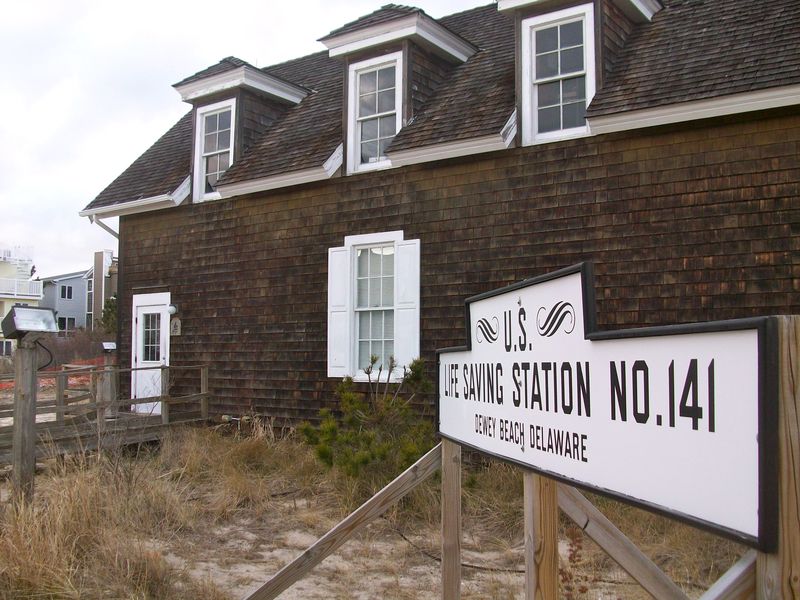Dewey Beach officials are putting aside a proposal to tax revenues on businesses. At its July 19 meeting, Dewey Beach Town Council voted to table a gross receipts tax plan. Council voted instead to allow businesses – which were almost universally opposed to the tax – six months to come up with an alternative proposal to create an equitable and dependable source of revenue for Dewey Beach.
Commissioners Gary Mauler and Anna Legates and Mayor Diane Hanson voted against Commissioner Courtney Riordan’s motion to put the gross receipts tax to a referendum vote in September. After Riordan’s motion failed 3-2, Mauler said he wanted Town Manager Marc Appelbaum to lead an effort with the Dewey Business Partnership to come up with an alternative proposal.
Mauler said the meetings could begin Monday, Sept. 9 – after Labor Day – and if no agreement is reached by Friday, March 1, the gross receipts tax will be back on the table.
Steve Montgomery, business partnership president, said businesses are willing to pay more to fund town operations, and Mauler’s proposal gives business owners a seat at the negotiating table.
Before the vote, council held a public hearing to gauge support for the proposal. Supporters of the tax said it would force businesses to shoulder the burden of large operating expenses, such as the police force. Opponents of the tax said it would put the town in legal jeopardy.
Budget and finance committee member Mike Dunmyer said he initially recommended town council adopt the tax. Dunmyer said he has since met with business owners and now thinks the town should abandon the idea. “They’re willing to fight very hard against this,” he said.
Dunmyer also said the budget and finance committee should be altered to include representatives from in-town commercial businesses, property owners and owners who rent out their homes.
Rep. Pete Schwartzkopf, D-Rehoboth Beach, said the attorney for the Delaware House of Representatives researched the issue and concluded Dewey Beach does not have the power to enact a gross receipts tax without approval from the General Assembly.
“I try to stay out of your business,” Schwartzkopf said. “I’m just here to tell you what the House attorney says.”
Highway One Partner Alex Pires filed a class-action lawsuit in March, challenging the town’s business license fees and calling them an illegal tax. In its response, the town argued it has the power to impose a tax.
Riordan said the ruling on the lawsuit would settle whether the town could legally impose a tax.
“A licensing fee is different from a tax,” Schwartzkopf said.
Town attorney Fred Townsend said the Chancery Court could rule on Pires’ lawsuit without addressing the town’s ability to impose a tax on businesses. Townsend said he believes the town has authority to tax. “It is not that well settled a point,” he said.
Before the public hearing began, Riordan said he wanted a gross receipts tax to be decided by referendum. “The powerful people in Dewey Beach are very smart and very capable,” he said. “I would rather deal with the voters,” he said. “And not resort to the courts.”
“We resort to the courts, we lose,” Riordan said. “The legal system, I don’t think, will deliver.”
Property-owner Marcia Schieck spoke in favor of the tax. “I’m one of the business owners in town that pay a tax,” she said. “I own a rental property business.”
Hotels and property owners who rent their homes currently pay a 3 percent accommodations tax to the town. Schieck said the gross receipts tax, which hotels and residential renters would be exempt from, would mean all businesses in town are being fairly taxed.
Schieck said if the gross receipts tax is not adopted, the town should consider repealing the accommodations tax.
Budget and Finance Committee member Dave Jasinski also supported the tax, saying the business community is not contributing enough to fund town operations. He said a referendum would allow the voters to decide whether a gross receipts tax is fair.
Commissioner Joy Howell, who favored the tax, said businesses have had ample opportunity to work with the town on a revenue proposal. “Where were they for the past year?” Howell asked after the meeting.
“Three commissioners voted against putting this to a vote of the people,” she said.
At the meeting, Mauler said, “This is a new approach, so let’s give it a shot.”






















































